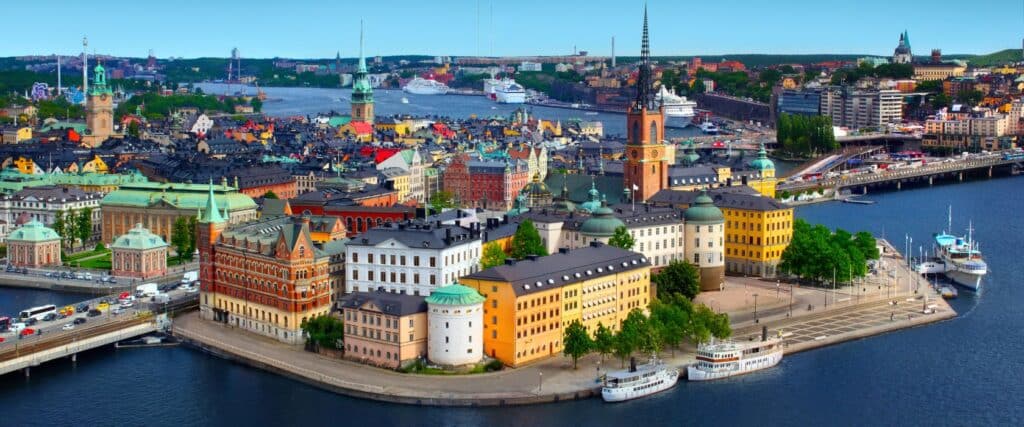Why Study in Austria?
Austria’s education system combines academic rigor with rich cultural experiences. Public universities uphold high standards through strong research funding and EU-wide collaborations. Many master’s programs include internships or applied research in Austria. Moreover, Austria ranks among Europe’s most affordable study destinations.
Perhaps the most compelling reason for studying in Austria is that EU/EEA students pay zero tuition fees, and international students pay lower fees than in the majority of European countries. Living costs are lower than in the U.S. or the U.K. Furthermore, Students can enjoy safe cities, excellent healthcare, and public transport. Meanwhile, the surrounding nature of lakes, forests, and mountains enriches student life year-round.
Programs increasingly use English and attract diverse students, thus helping international students to thrive and grow. Austria promotes sustainability, innovation, and global research. Graduates can find strong careers in engineering, finance, and research. Whether you’re a tech enthusiast or artist, Austria will support your academic and personal goals.
What are the Top 5 Universities for a Master’s Degree in Austria?
Austria hosts several internationally ranked universities. These five stand out for their academic excellence, global outlook, and strong career pathways.
University of Vienna
Founded in 1365, the University of Vienna ranks among Europe’s oldest and most respected universities. It enrolls over 90,000 students, including around 28,000 international scholars (~30%). The university offers over 100 master’s programs, many taught entirely in English.
It excels in the humanities, social sciences, and natural sciences. Moreover, it provides a vibrant academic environment in central Vienna. Popular programs include international relations, psychology, and linguistics.
The university promotes diversity and interdisciplinary collaboration. EU/EEA students pay a very low tuition fee as well as a student union fee totalling €388.56 per semester; non-EU students pay about €751.92 per semester, and residents of Ukraine and certain developing countries are fully exempt from the tuition fees.
TU Wien (Vienna University of Technology)
TU Wien ranks among Europe’s leading technical universities. It specializes in engineering, computer science, and architecture. Moreover, it drives innovation in automation, machine learning, and sustainability. The university offers research-focused master’s programs designed to meet industry needs.
On the downside, TU Wien offers a smaller number of master’s programs in English (currently only around 9 master’s programs are English‑taught).
Students gain hands-on experience through strong partnerships with global companies. In addition, TU Wien connects students to Vienna’s thriving startup and tech scene. Its central location offers easy access to career fairs across the city. The university’s research-led approach leads to excellent job outcomes for graduates.
WU Executive Academy (Vienna University of Economics and Business)
WU Executive Academy belongs to Vienna University of Economics and Business, one of Europe’s top business schools. It offers several English-taught master’s programs, such as Strategy, Innovation, Management Control, and Digital Economy.
Students gain real-world skills through global residencies, case studies, and executive coaching. Moreover, WU holds triple accreditation (EQUIS, AACSB, AMBA), a mark of excellence. Graduates join a network of 7,000 executives from over 100 countries. Tuition varies by program but all programs include strong career support.
University of Innsbruck
The University of Innsbruck sits in the Alps, perfect for students who enjoy nature and academic excellence. It excels in natural sciences, geosciences, environmental science, and sports science. Moreover, it offers English-taught master’s programs in areas as diverse as atmospheric science and ecology, to strategic management an innovation.
Many programs include fieldwork, EU internships, or hands-on sustainability modules. In addition, students gain access to strong research in climate studies and alpine ecosystems. The university attracts a diverse international student body from across Europe and beyond.
Its alpine setting supports an active lifestyle with hiking, skiing, and outdoor clubs. Tuition follows Austria’s public university fee model for EU and non-EU students alike.
Webster Vienna Private University
Webster Vienna Private University opened in 1981 as Austria’s first English-language private university. It offers English-taught master’s programs in International Relations, Psychology, Finance, Marketing, and Business Administration. Webster Vienna offers English-taught master’s programs in business, international relations, and psychology.
The university grants both U.S. and Austrian-accredited degrees. The campus builds leadership skills through student clubs, career events, and global guest lectures. Students benefit from small class sizes, personalized mentorship, and multicultural cohorts from over 70 countries. In addition, Webster Vienna provides strong career services and global academic flexibility.
Tuition for international master’s students ranges from €20,000–30,000 per academic year (and up to €40,000–45,000 for an 18–24 month program). By contrast, this is significantly higher than public universities in Austria.
Cost of Studying in Austria
Austria’s public universities remain among the most affordable in Europe. EU/EEA students pay no tuition, only a small semester fee. Non-EU/EEA students usually pay around €726 per semester. Some universities offer fee waivers in exceptional cases.
Private universities charge more but often provide scholarships. On the plus side, Austria offers strong value through moderate living costs. Students can spend €950–€1,100 monthly on rent, food, and transport.
Austrian cities such as Vienna rank high for livability and affordability. Austria’s public services make student life smooth and convenient.
Are there Scholarships & Financial Aid for International Students in Austria?
Austria provides several scholarships to help students manage tuition and living costs. OeAD Scholarships support both EU and non-EU students in various academic fields and degree levels. Likewise, many Austrian universities offer their own merit-based or need-based financial aid.
Always check each university’s official website for available funding options and deadlines. Furthermore, Erasmus+ grants support EU students pursuing part of their studies in Austria. These opportunities make it easier to access high-quality education without heavy financial burdens.
Application Process & Admission Requirements
Each Austrian university sets its admission criteria for master’s programs. Applicants must hold a recognized bachelor’s degree in a related field. Moreover, universities require transcripts and one or two academic references. You must prove your language proficiency in the program’s language.
English programs accept IELTS or TOEFL scores. German programs require TestDaF or ÖSD certification. Universities may also request a résumé or statement of purpose. Many technical programs now teach in English.
Student Visa & Work Opportunities
International students from non-EU/EEA countries must apply for a student residence permit before arriving in Austria. You can apply through the nearest Austrian embassy or consulate. Once enrolled, students may work up to 20 hours per week during the semester.
Graduates can apply for a 12-month job search visa after completing their degree. This visa lets you stay in Austria while looking for full-time work. With a relevant job offer, you can apply for a residence permit called the Red-White-Red Card. This card grants long-term residence and employment rights.
Austria’s post-study pathway attracts ambitious students. Tech, finance, and engineering sectors actively recruit when benchmarking against Europe and the U.S. for the best career outcomes.
Career Prospects After Graduation
Austria has a strong job market and a highly skilled, educated workforce. Key industries hiring graduates include engineering, finance, technology, and renewable energy. Moreover, tourism and hospitality offer growing opportunities for multilingual professionals.
Mechanical, electrical, and civil engineering roles continue to be in high demand. Data science and sustainability careers expand with innovation and funding. Firms like Siemens and Red Bull hire through internships and research roles. Austria has everything you need to ensure long-term career success for master’s students.
Student Life & Culture in Austria
Austria offers a balanced student experience rich in culture, nature, and community. Students can attend concerts, explore museums, and join centuries-old traditions. Moreover, skiing, hiking, and cycling in the Alps and national parks can provide the life balance master’s students seek. Universities support international groups, sports clubs, and cultural organizations.
Cities offer affordable access to arts and events. Public transport remains reliable and cheap. Austria’s location in Europe allows easy travel. Cities such as Vienna, Graz, Linz, and Innsbruck provide vibrant, student-friendly lifestyles.
Why Not Choose Austria for Your Master’s Experience?
Earning a master’s in Austria offers so much more than academics; it’s a life-changing experience. Students gain affordable education, safety, cultural richness, and global career prospects in a breathtakingly beautiful setting. Additionally, Austria ranks high in both quality of life and academics.
Austria may stay quiet globally, but it consistently provides top-tier education and world-class opportunities.
Get real insight into studying a master’s in Austria.






